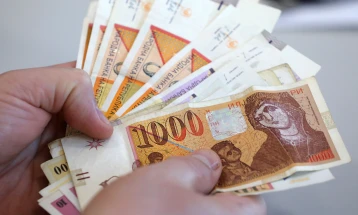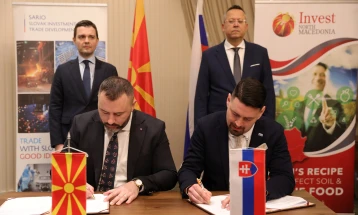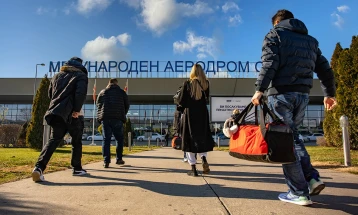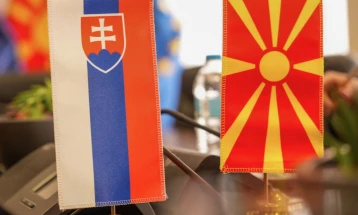Conference on challenges and opportunities for increased cooperation among Western Balkans economies
- Regional cooperation ensures growth and development of economies. Challenges are no obstacles, they represent a chance to jointly overcome them and multiply opportunities opening before us, Deputy PM for Economic Affairs Fatmir Bytyqi told regional conference on boosting economic cooperation in the Western Balkans, organized by the Economic Chamber in partnership with USAID in Skopje on Thursday.
- Post By Ivan Kolekevski
- 16:40, 30 March, 2023
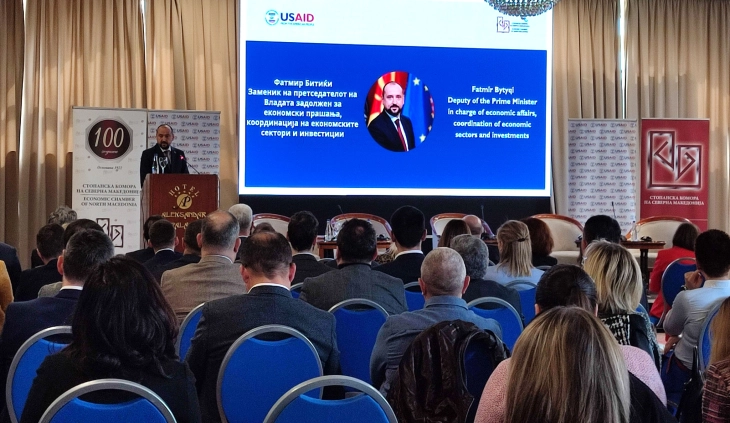
Skopje, 30 March 2021 (MIA) - Regional cooperation ensures growth and development of economies. Challenges are no obstacles, they represent a chance to jointly overcome them and multiply opportunities opening before us, Deputy PM for Economic Affairs Fatmir Bytyqi told regional conference on boosting economic cooperation in the Western Balkans, organized by the Economic Chamber in partnership with USAID in Skopje on Thursday.
"Enhancing economic integration and cooperation among countries of the Western Balkans through all existing initiatives is a priority of all nations in the area. This should be the Balkans of the 21st century. Regional competitiveness is the key that opens the door to prosperity," said Deputy PM Bytyqi.
According to him, the region of 18 million citizens has started the path to becoming a part of the EU single market but it is still far from the EU standard, namely the GDP per capita is at about 30 percent of the EU average.
"Reaching the EU average is possible only through mutual cooperation. Regional competitiveness, not regional competition, is our opportunity for faster overcoming of challenges in modern times of swift changes," said Bytyqi.

United States Ambassador Angela Price Aggeler said the future of the region is in the hands of the businessmen.
"The region's future is in your hands. You, the private sector, must contribute in resolving the biggest challenges that represent an obstacle for investments, prevent innovations and create economic instability. Promote for the rule of law, help in the fight against corruption and lobby for better infrastructure and networking in the region," said Ambassador Aggeler.

Economic Chamber president Branko Azeski said history and politics are still dominating over economy and business in the region.
"Balkan political elites needed 30 years to realize that regional politics and the approach in doing business is not a return to old Yugoslavia but turning to the western progressive values, whereas successful regional integration requires initiatives by the countries themselves, considering the successful example of the Visegrad Group," said Azeski.
According to him, even joined as the Western Balkans, the region is small.
"This means that we have to invest maximum efforts, to improve all performances that are important for the increase of exports and in creating competitive products that will be able to compete with other markets. If we don't do this, we bring business development into question," said Azeski.
The conference included a panel discussion with regional companies, for the purpose of highlighting the positive examples and good practices, problems and challenges in increasing regional cooperation. A study on opportunities to incentivize a higher degree of regional cooperation, developed by professor Darko Lazarov, was also presented.
USAID Private Sector Regional Integration Support project, launched nine months ago, aims to enable local businesses to be better informed about trade trends and market needs, as well as value and supply chains. This is so that they can better integrate into regional and global value chains, and have stronger capacity to compete in the Western Balkan region and more broadly in the EU. Through this activity, USAID is partnering with the Economic Chamber of North Macedonia to: create tools for public-private dialogue; promote the benefits of regional economic integration to the business community; explore and promote export opportunities; and provide sustainable services for export-oriented companies.
Photo: MIA

